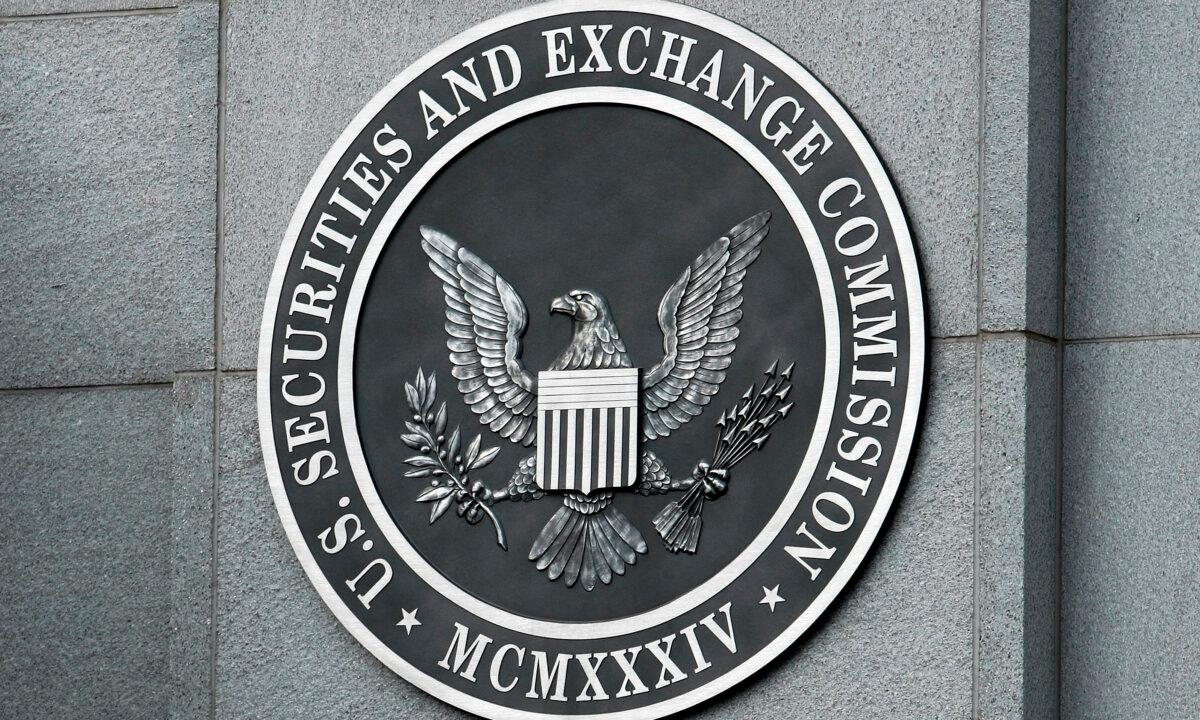The pro-Bitcoin president-elect could trigger a crypto-friendly regulatory environment.
Securities and Exchange Commission (SEC) Chair Gary Gensler’s departure in January could transform the U.S. cryptocurrency regulatory landscape.
Gensler, a staunch critic of the digital assets industry, confirmed on social media platform X last week that he will resign from his role the day of President-elect Donald Trump’s inauguration.
Trump and Gensler possess contrasting views of crypto.
Gensler has cracked down on the crypto industry since he was appointed head of the SEC in 2021.
Speaking at the Piper Sandler Global Exchange and FinTech Conference in New York City last year, the outgoing SEC chief said the crypto frenzy has been rife with “Hucksters. Fraudsters. Scam artists. Ponzi schemes.”
“The crypto securities markets should not be allowed to undermine the well-earned trust the public has in the capital markets,” Gensler said. “The crypto markets should not be allowed to harm investors.”
President-elect Donald Trump has pledged to herald a change in federal crypto policy.
While he promised to fire Gensler on his first day in the White House, Trump has also proposed a plethora of pro-Bitcoin measures.
He wants to establish a national Bitcoin reserve, create a presidential crypto advisory council, and ensure all remaining Bitcoin is mined domestically.
“For too long, our government has violated the cardinal rule that every Bitcoiner knows by heart: Never sell your Bitcoin,” Trump said during a keynote address at the largest industry conference this past summer.
This is a reversal from Trump, who has called it a scam and a threat to the U.S. dollar.
“I am not a fan of Bitcoin and other Cryptocurrencies, which are not money, and whose value is highly volatile and based on thin air,” Trump said in social media posts in 2019.
“Unregulated Crypto Assets can facilitate unlawful behavior, including drug trade and other illegal activity.”
Now that the new administration features pro-crypto officials, will the SEC’s regulatory pursuits change?The agency’s fiscal year 2024 enforcement in the crypto industry resulted in fines and investor relief totaling $8.2 billion.
With the record-high penalties, the number of cases tumbled 26 percent compared to the previous year.
“The Division of Enforcement is a steadfast cop on the beat, following the facts and the law wherever they lead to hold wrongdoers accountable,” Gensler said in a statement attached to the announcement.
This comes as the SEC outlined its aims for the new year.
In October, the SEC’s Division of Examinations published its Fiscal Year 2025 Examination Priorities.
The report reiterated the SEC’s position to continue monitoring the crypto sector, including investment advisers, broker-dealers, and other financial intermediaries that sell digital assets or facilitate transactions.

“Examinations of registrants will focus on the offer, sale, recommendation, advice, trading, and other activities involving crypto assets that are offered and sold as securities or related products, such as spot bitcoin or ether exchange-traded products,” the report stated.
With a new regime set to take the reins, market watchers are bracing for change, especially with prominent crypto advocates leading various departments, including Scott Bessent as treasury secretary and Howard Lutnick as commerce secretary.
For now, industry experts are submitting recommendations in the suggestions box.
Stuart Alderoty, the chief legal officer of blockchain-based digital payment company Ripple, outlined several priorities the Trump transition team should consider when choosing the next SEC head.
On the new administration’s first day, Alderoty thinks the federal government should end non-fraud crypto litigation and ensure commissioners Mark Uyeda and Hester Peirce remain at the regulatory body, he said on X.
Uyeda and Peirce have been crypto’s allies at the SEC.
Uyeda, in an interview with FOX Business’s “Varney & Co.,” agreed with the president-elect that the “war on crypto needs to stop.”
“There are a number of things that we can do with respect to crypto to help make America one of the global leaders in crypto,” he said.
The SEC needs to provide clarity, produce safe harbors and regulatory sandboxes for investors, and advocate for a whole-of-government “cohesive and comprehensive approach to crypto,” Uyeda said.
“President Trump and the American electorate have sent a clear message. Starting in 2025, the SEC’s role is to carry out that mandate,” he said.
Peirce, speaking on the “CryptoCounsel” podcast this month, has touted more open dialogue between the crypto industry and SEC regulators.
The Ripple CLO has echoed this sentiment, supporting improved relations between lawmakers, regulators, and market participants.
“Collaborate with all financial regulators and Congress on clear and simple rules for crypto, but without presuming that those rules give the SEC primary jurisdiction over anything,” Alderoty wrote.
“Guarantee accountability and restore public trust by addressing past issues within the SEC by emboldening the Office of Inspector General.”
Alderoty also proposed rescinding the SEC’s 2019 Framework for Investment Contract Analysis of Digital Assets, which was published after the industry called for better regulatory clarity between securities laws and blockchain-based tokens.
This guidance, which is neither a rule nor a regulation, offers a blueprint for determining whether a digital asset possesses the characteristics of an investment contract (security).
With Republican control of Congress, lawmakers are likely to adopt a “principles and disclosure-based” approach to policymaking, says Dorothy DeWitt, a former director of market oversight at the U.S. Commodity Futures Trading Commission.
Enforcement will also likely target high-risk areas of the crypto market, such as national security, fraud, and misconduct, she said.
“Finally, a path to regulatory clarity will almost certainly involve registration of exchanges, intermediaries and digital assets securities, and implementation of more extensive disclosure standards as well as formal compliance with agency-prescribed principles,” DeWitt said in a Nov. 18 post for the Official Monetary and Financial Institutions Forum.
Despite the winds of change expected to blow through the crypto sector, industry parties should not anticipate significant policy and regulatory changes immediately.
Instead, DeWitt notes, these adjustments could “take place over a year or more, not months.”
Since Trump’s electoral victory, Bitcoin prices have rocketed to all-time highs and were a few hundred dollars short of reaching $100,000.
The growth in the chief cryptocurrency, which controls 58 percent of the market, has lifted other digital tokens, from stablecoins to altcoins.
A spokesperson for Securities and Exchange Commission declined a request for comment.

